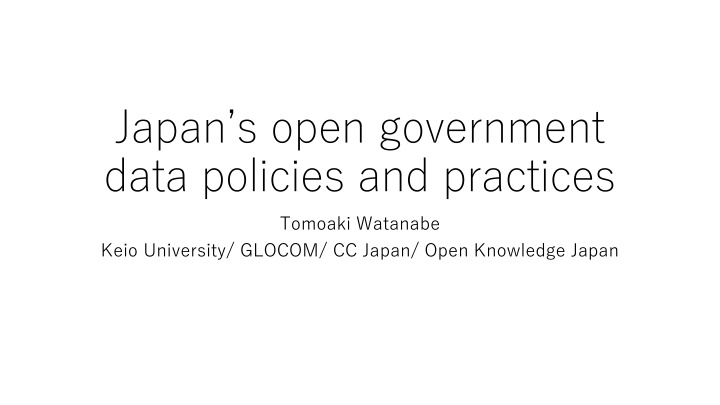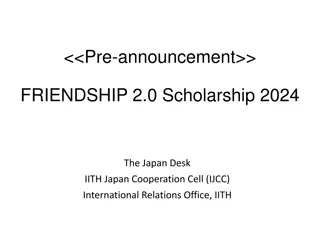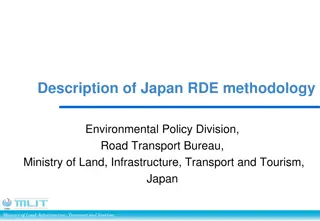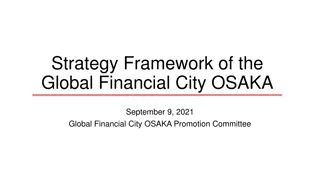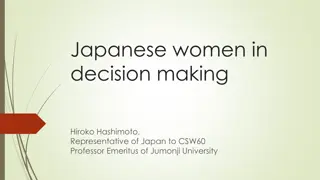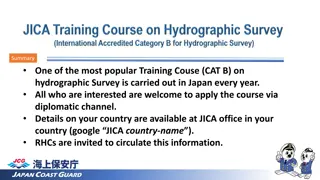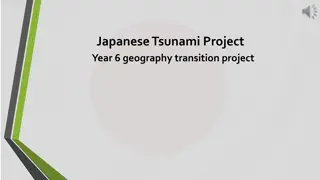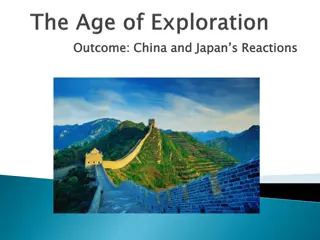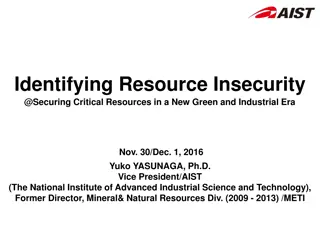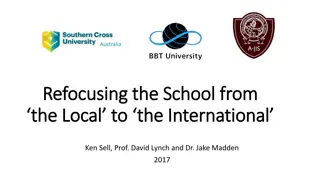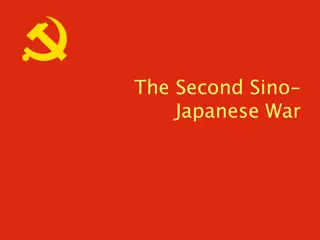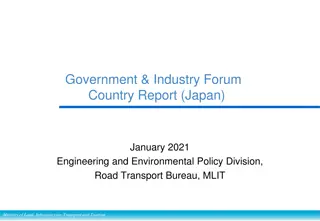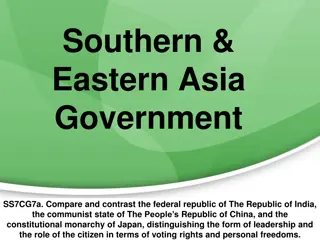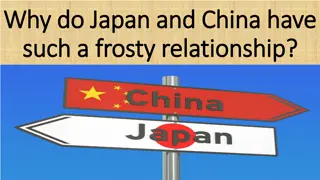Open Government Data Policies and Practices in Japan
This content discusses Japan's open government data policies and practices, emphasizing the importance of open data for fostering innovation, collaboration, and economic benefits. It outlines strategies for implementing open data initiatives, including initial development courses, setting policy goals, and selecting appropriate licenses to maximize data reuse and accessibility.
Download Presentation

Please find below an Image/Link to download the presentation.
The content on the website is provided AS IS for your information and personal use only. It may not be sold, licensed, or shared on other websites without obtaining consent from the author.If you encounter any issues during the download, it is possible that the publisher has removed the file from their server.
You are allowed to download the files provided on this website for personal or commercial use, subject to the condition that they are used lawfully. All files are the property of their respective owners.
The content on the website is provided AS IS for your information and personal use only. It may not be sold, licensed, or shared on other websites without obtaining consent from the author.
E N D
Presentation Transcript
Japans open government data policies and practices Tomoaki Watanabe Keio University/ GLOCOM/ CC Japan/ Open Knowledge Japan
Open data & I Research: US and European OD policies, licensing, organizational arrangement (within the government), economic benefits, etc. Policy: member of relevant government-convened expert boards Advising: Helping local govts as an govt-appointed advisor; helping licensing issues as CC Japan member Advocacy: Raising awareness, promoting use, etc. as an OKJP member
What is open in open data? Other people can freely use them. (freedom) Data holder does not exercise control over others uses. That freedom promotes widespread uses and bring unexpected benefits. By granting others freedom, data owner in the end get others work towards her/ society s benefits. From a government s perspective, openness is about involving others to create benefits to the society. No use, no success in open data
Course of initial development Comprehensive national strategy mentioning OD sets open data as one of the goals Specific strategy for OD learning from experts, pioneers, and other countries specific policy goals initial executive team expert board to consult with
Course of initial development II Important early decisions priority areas for data release licensing metadata standard data portal design, launch common license for government web sites Mid-term issues legal questions financing questions rights clearance data management/ inventory user outreach
Setting Policy Goals 2012 after the Great Earthquake of Eastern Japan and nuclear power plant meltdowns. Power of data, power of data reuse Leading to the specific OD strategy Goals set as Transparency and government trust Participation and collaboration Economic benefits and greater government efficiency
Selecting a license First of the Five Star Open Data Deployment Scheme cf https://5stardata.info/en/ Uniformity very important so that data users do not have to read many licenses so that combining different data sets is easy Data user/ developer involvement very important so that the terms are user-friendly so that the data will be used as quickly and widely as possible some data holders have lots of worries Global de facto standard: Open definition cf https://opendefinition.org/
Japanese case Expert board discussed it Policy experts, legal scholars, technologists, users, advocates Government s first choice: CC BY 2.1 JP Next choice for OD expansion plan: original license Some user unfriendliness compared to CC BY Users and advocates pushed back Revised original license Designed to be CC BY 4.0 compatible Public domain materials explicitly excluded for freer use
Concerns about openness Prohibit commercial use to prevent any unfair benefiting from govt resources commercial use helps the economy, and one s benefiting does not preclude others to do the same. Let s welcome everyone. Prohibit modification to prevent inaccuracies let s make the original data easy to find and compare with the modified version prohibiting modification prohibits correcting errors, developing apps with select data, and so many more benefits Prohibit criminals and terrorists use of the data do you expect terrorists to follow terms of use when they act? criminals use roads to commit crime, prohibiting criminal use does not prevent crime. Same with data use. Many feel anxious about unknown users/ usage. The real and bigger problem is very often that people do not notice open data, and fails by non-use, not in appropriate use. Many prohibition and longer terms of use keeps many users away, not helpful.
Select sources available in English Licenses Government Standard Terms of Use (Version 2.0) Example https://www.tele.soumu.go.jp/e/standard/index.htm Version 1.0 Template https://www.kantei.go.jp/jp/singi/it2/cio/dai57/sankou2.pdf Early Key Policies - A New Strategy in Information and Communications Technology (May 2010)(Comprehensive package) - http://www.kantei.go.jp/foreign/policy/it/100511_full.pdf - Open Government Data Strategy (July, 2012) (OD specific) - http://www.kantei.go.jp/foreign/policy/it/20120704/text.pdf - Japan Revitalization Strategy - JAPAN is BACK (June, 2013) (Comprehensive package) - http://www.kantei.go.jp/jp/singi/keizaisaisei/pdf/en_saikou_jpn_hon.pdf
